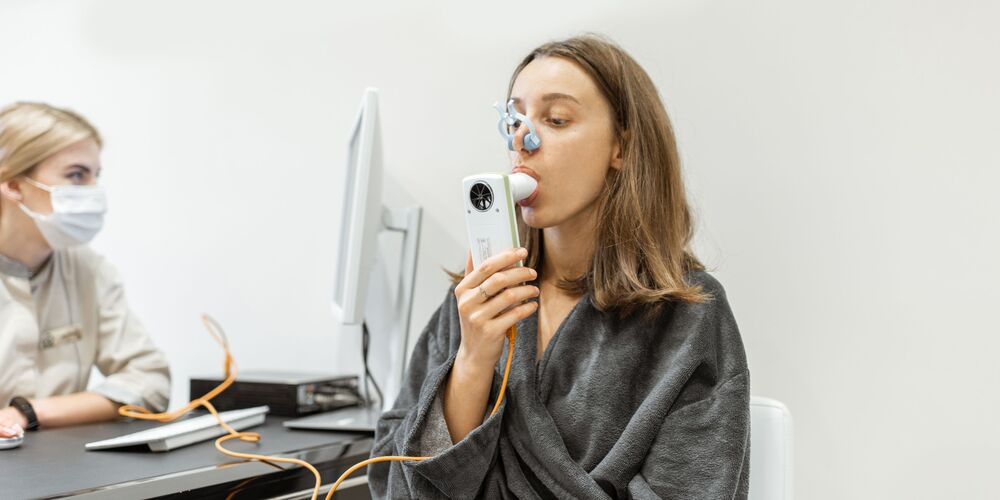Spirometry: Has both good and bad aspects of usage.
You might have heard about Spirometry, the most common lung function test that measures the volume of air exhaled versus time. But have you ever thought about its downsides? Here, we are discussing a few.
Spirometry testing in a primary care setting significantly improves early identification of chronic obstructive pulmonary disease (COPD), according to the results of a prospective trial published in the April issue of Chest.
Great, but the downside is that it is overused. When you forcefully breathe in or out, you often tighten up the entire chest wall, and that helps risk or maintain restricted or sub-optimal breathing.
Here’s what you can do to offset that risk.
Lung Test Questioned
A popular lung function test may not be as accurate as some think. New research brings to light some common problems with a spirometry test.
Spirometry is one of the most common pulmonary lung function tests. It is used to test for a variety of lung problems and to determine the effectiveness of treatment. The patient takes a deep breath and breathes out with force into a spirometer to the best of their ability.
The spirometer measures both the amount of air expelled and how quickly the air was expelled from the lungs.
It is widely assumed that accuracy is guaranteed by frequent calibrations. However, researchers in Pittsburgh say errors frequently occur during the test that can lead to inaccurate results. They say one common error happens when the machine measures the zero level or no airflow incorrectly. Another common error can occur when the sensor is obstructed by condensation of water vapor, mucus, or the subject’s fingers.
Researchers say these two problems are especially dangerous because the high values they produce replace accurate but lower values recorded during testing, leading the technician to believe the patient’s lung function is better than it actually is.
Study authors say those who conduct spirometry need to be aware of these possible errors and question if a patient has a dramatic improvement in their lung function in a short period.




